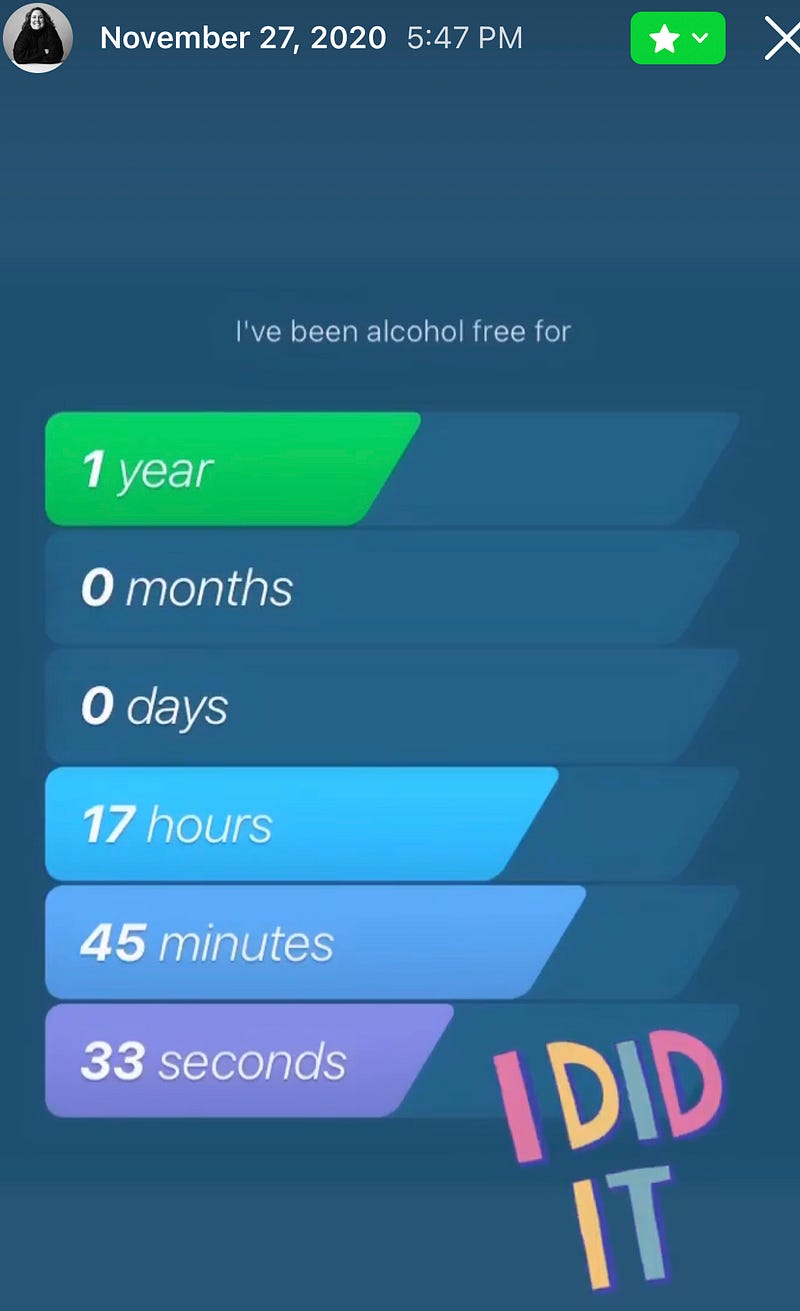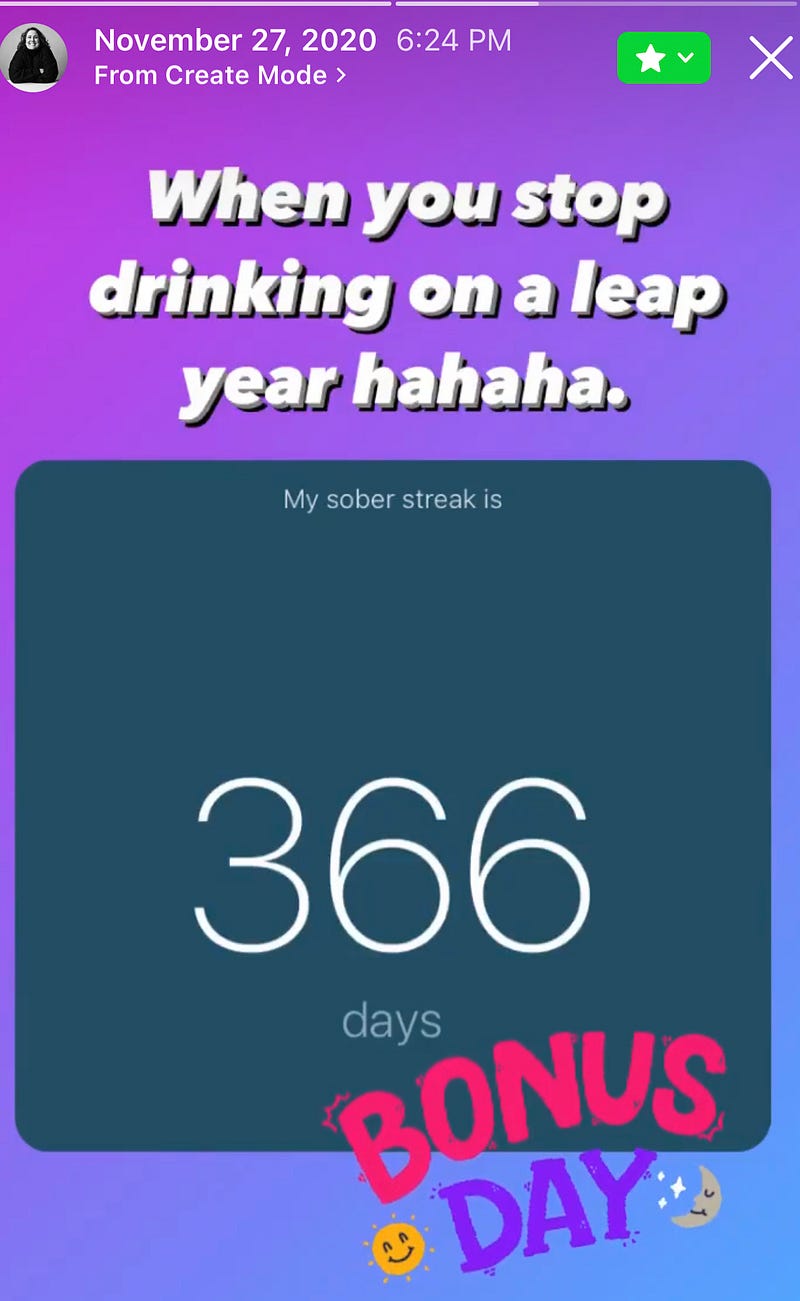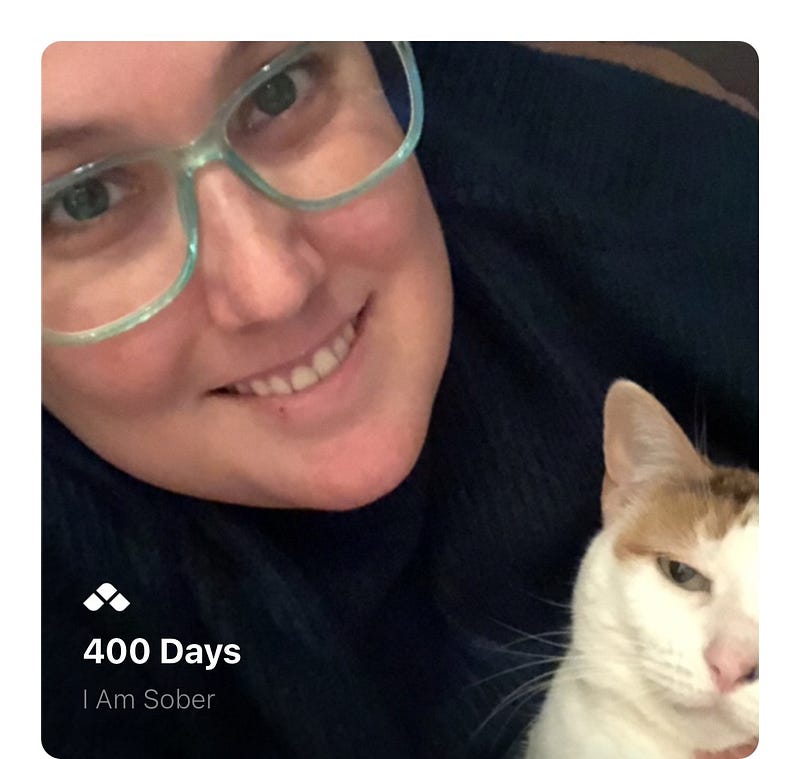Strategies for Lasting Sobriety: My Personal Journey to Quitting
Written on
Chapter 1: My Path to Sobriety
Embarking on my quest to permanently quit drinking has been filled with defining moments that have influenced my approach to sobriety. While every individual's journey is distinct, I have discovered that certain strategies and reflections have significantly aided my recovery. Here, I will share these strategies alongside personal stories that illustrate my journey toward a sober life.
Setting Clear Objectives
When I initially decided to stop drinking, I opted not to make a grand announcement. Instead, I focused on a straightforward goal: to take it one day at a time. This decision came just before Thanksgiving in 2019, and by not making a fuss, I allowed myself the necessary space to understand my feelings about sobriety.
It wasn't until I reached the one-year milestone in my sobriety that I felt ready to share my journey on social media. The responses from friends and family varied; some were supportive, while others posed questions like, "Is this forever?" and "Why keep count if you're not an alcoholic?" My answers were both sincere and open-ended, showcasing the ongoing nature of my journey. The overwhelming majority of feedback was filled with kindness and encouragement.


Building a Support Network
Achieving sobriety is not a solitary endeavor. I have cultivated a strong network of friends and family who have been witnesses to my struggles and successes. These individuals are genuinely invested in my progress and take pride in my achievements.
My close friends and partner have consistently been my support system, understanding the challenges I have faced for years. They are always available to listen or celebrate my milestones alongside me.


Recognizing Triggers
Understanding and managing my triggers has been essential for maintaining my sobriety. Whether it’s daily stressors or specific environments, being aware of these triggers has enabled me to adopt healthier coping strategies.
The pandemic presented a unique set of challenges. Although it might have seemed easier to avoid alcohol during lockdown, my therapist encouraged me to consider why that perception existed. The reality was that alcohol was still easily accessible, but my commitment to sobriety ultimately prevailed.
Learning to Manage Stress
Addiction frequently serves as a means of escaping stress and negative feelings. I have discovered healthier alternatives like exercise, meditation, and creative pursuits that have become invaluable in my stress management toolkit.
During quarantine, virtual happy hours and the proximity of liquor stores posed potential temptations. Nevertheless, I faced these challenges head-on, reaffirming my decision to quit drinking.
Educating Myself
Knowledge is a powerful ally in recovery. Gaining an understanding of the science behind addiction has reinforced my resolve to stay sober.
I have immersed myself in research about how addiction impacts the brain, which has deepened my appreciation for the importance of maintaining my sobriety.
Creating a Structured Routine
Establishing a daily structure has been crucial for my stability throughout this journey. A well-organized day minimizes idle time, thus reducing the likelihood of cravings.
This routine has been particularly important during the initial phases of sobriety, where boredom and restlessness often led to cravings.
Prioritizing Self-Care
Focusing on self-care has become a priority for me. Ensuring I get enough sleep, eat healthily, and engage in fulfilling activities has significantly enhanced my overall well-being.
I learned that caring for my physical and mental health is vital for maintaining my sobriety.
Seeking Professional Guidance
Choosing to consult with medical professionals and addiction counselors marked a pivotal moment in my recovery journey. Their support, therapy, and insights have been invaluable.
Therapy has played a crucial role in my recovery by helping me uncover the underlying issues that contributed to my addiction and providing a safe space for introspection.
Tracking My Journey
Keeping a journal to document my thoughts, feelings, and achievements has allowed me to identify patterns, celebrate wins, and stay motivated.
Journaling has served as an essential tool for self-reflection, granting me perspective on my journey and the transformations I've experienced. Additionally, I use the app "I Am Sober," which connects me with a community and allows me to capture memorable moments related to my major milestones.


Staying Accountable
Regular check-ins with sponsors, therapists, or support groups have kept me accountable and inspired. Knowing I am answerable to someone else strengthens my commitment to sobriety.
Accountability has been a significant aspect of my journey. Sharing my progress with others who understand the challenges of addiction has proven both empowering and motivating.
Conclusion
Sobriety is an ongoing journey that requires dedication, support, and self-awareness. While my path may have its unique characteristics, the strategies and insights shared here can offer guidance to others striving for and maintaining sobriety. Remember, each person's journey is distinct, but with determination and the right resources, a healthier, addiction-free life is within reach. Let's share these strategies with others on their recovery paths and continue to uplift one another in our quest for lasting sobriety.
About the Author
Dara Laine Murray is an enthusiastic sobriety writer on Medium, intertwining personal experiences with insightful research. In addition to her writing endeavors, Dara serves as the Director of Research at a nonprofit organization, utilizing her analytical abilities to benefit the community. She also contributes as an editor at Modern Sobriety, curating content to support those in recovery. Dara's commitment to lasting sobriety exemplifies the power of self-discovery and the significance of a supportive network.
This video offers valuable advice, tips, and tactics for those looking to stop drinking alcohol. It provides insights into the challenges and strategies for navigating the path to sobriety.
In this video, the focus is on the seven major mistakes to avoid when quitting drinking. It serves as a helpful guide for individuals in their sobriety journey.